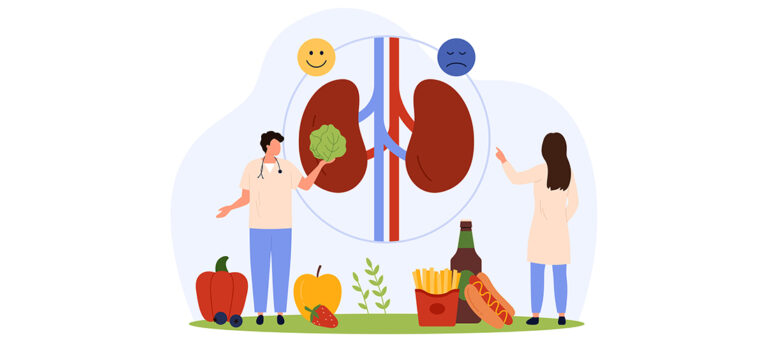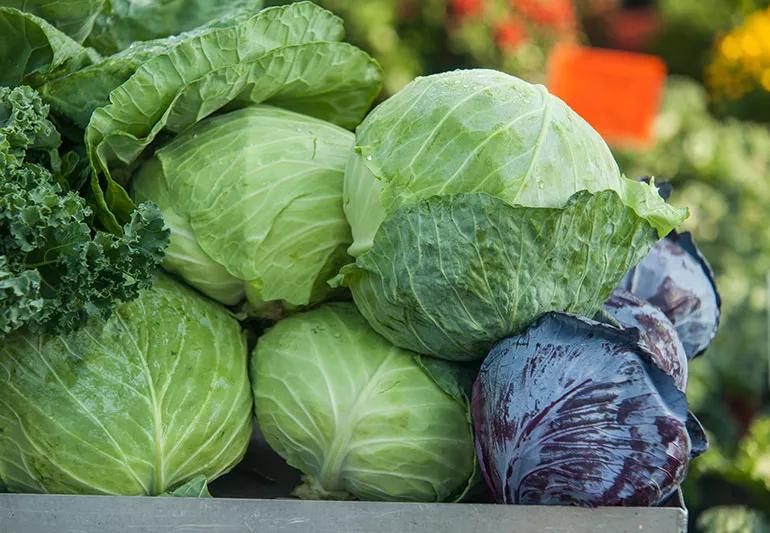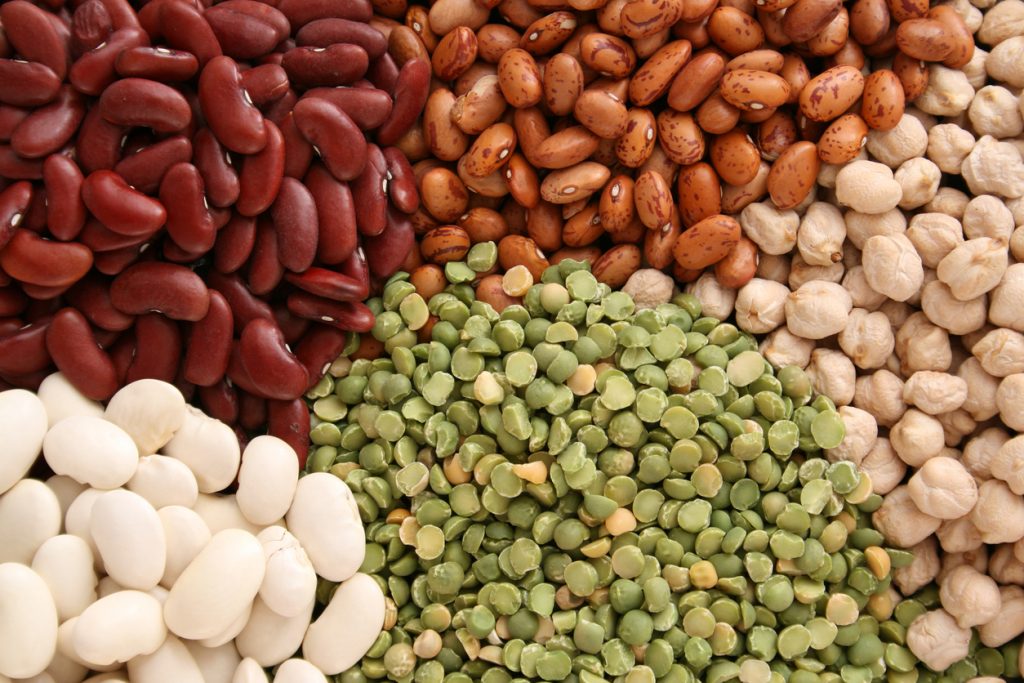Understanding the importance of maintaining your kidneys’ well-being is crucial, as they are vital in filtering waste and toxins from your blood and ensuring the proper balance of electrolytes. With kidney disease posing a significant global health concern, diet’s pivotal role in preventing and managing this condition cannot be overstated. Selecting the right foods can actively contribute to supporting kidney function, reducing inflammation, and slowing down the progression of kidney disease. This comprehensive guide delves deeply into an array of top foods promoting kidney health, offering invaluable insights into effectively nourishing and supporting your kidneys. Discover the top foods to support kidney health and reduce the risk of kidney disease.
Understand Kidney Function
Understanding kidney function is crucial for maintaining overall health. Here’s a comprehensive overview:
The kidneys perform several critical functions:
– Waste Removal: They filter waste and toxins from the blood.
– Electrolyte Balance: They regulate electrolyte levels such as sodium, potassium, and calcium.
– Fluid Balance: They control fluid levels in the body.
– Blood Pressure Regulation: They produce hormones to manage blood pressure.
– Hormone Production: They produce erythropoietin for red blood cell production and calcitriol for vitamin D activation.
– Acid-Base Balance: They maintain pH levels in the body.
How Kidneys Filter Waste:
– Blood flows into the kidneys through renal arteries.
– Glomeruli, tiny filters, remove waste and excess fluids.
– Tubules reabsorb essential nutrients and electrolytes.
– Urine is formed and excreted through ureters.
Factors Affecting Kidney Function:
– Age
– Diabetes
– High Blood Pressure
– Family History
– Obesity
– Smoking
– Medications
– Infections
Kidney Function Tests:
– Glomerular Filtration Rate (GFR)
– Creatinine Clearance
– Blood Urea Nitrogen (BUN)
– Serum Creatinine
– Urinalysis
Stages of Kidney Disease:
– Stage 1: Normal kidney function with some damage
– Stage 2: Mild kidney damage with some loss of function
– Stage 3: Moderate kidney damage with significant loss of function
– Stage 4: Severe kidney damage with significant loss of function
– Stage 5: Kidney failure (dialysis or transplant needed)
Maintaining Healthy Kidneys:
– Stay hydrated
– Eat a balanced diet
– Exercise regularly
– Manage blood pressure and diabetes
– Avoid smoking and excessive medication use
13 Foods for a Healthy Kidney: Boost Your Renal Health
Here are some options for kidney health foods:
Blueberries

Nutritional Facts (1 cup, fresh):
– Calories: 84
– Carbohydrates: 21g
– Fiber: 4g
– Protein: 1g
– Fat: 0.5g
– Sodium: 1mg
– Potassium: 114mg
– Vitamin C: 11mg (18% DV)
– Vitamin K: 11mcg (14% DV)
– Antioxidants: High amount of anthocyanins and phenolic acids
Health Benefits:
– Antioxidant Powerhouse: Blueberries contain high antioxidants, which help protect against cell damage, inflammation, and oxidative stress.
– Brain Health: Blueberries may improve memory and cognitive function and reduce the risk of age-related mental decline.
– Heart Health: Blueberries’ fiber, potassium, and antioxidants support heart health by reducing blood pressure and cholesterol levels.
– Anti-Inflammatory: Blueberries’ antioxidants and polyphenols may help reduce inflammation and improve arthritis symptoms.
– Cancer Prevention: Blueberries’ antioxidants and phytochemicals may help prevent cancer cell growth and reduce the risk of certain cancers.
– Eye Health: Blueberries’ anthocyanins may help protect vision and reduce the risk of age-related macular degeneration.
– Kidney Health: Blueberries’ antioxidants and fiber may help support kidney function and reduce the risk of kidney disease.
Kidney Health Benefits:
– Reduced Inflammation: Blueberries’ antioxidants may help reduce kidney inflammation.
– Improved Kidney Function: Blueberries’ fiber and antioxidants may help support kidney function and reduce the risk of kidney disease.
– Lower Blood Pressure: Blueberries’ potassium content may help lower blood pressure and reduce kidney strain.
Bell Peppers

Nutritional Facts (1 cup, sliced):
– Calories: 49
– Carbohydrates: 11g
– Fiber: 2g
– Protein: 1g
– Fat: 0.2g
– Sodium: 1mg
– Potassium: 213mg
– Vitamin C: 125mg (208% DV)
– Vitamin B6: 0.2mg (10% DV)
– Antioxidants: High amount of carotenoids and polyphenols
Health Benefits:
– Antioxidant-Rich: Bell peppers contain antioxidants that help protect against cell damage and oxidative stress.
– Anti-Inflammatory: Bell peppers’ antioxidants and polyphenols may help reduce inflammation.
– Cancer Prevention: Bell peppers’ antioxidants and phytochemicals may help prevent cancer cell growth.
– Eye Health: Bell peppers’ vitamin C and beta-carotene may help protect vision.
– Immune System: Bell peppers’ vitamin C supports immune function.
– Digestive Health: Bell peppers’ fiber supports healthy digestion.
– 7. Kidney Health: Bell peppers’ antioxidants, fiber, and potassium may help support kidney function.
Kidney Health Benefits:
– Reduced Oxidative Stress: Bell peppers’ antioxidants may help reduce oxidative stress in the kidneys.
– Improved Kidney Function: Bell peppers’ fiber, potassium, and antioxidants may help support kidney function.
– Lower Blood Pressure: Bell peppers’ potassium content may help lower blood pressure.
Cabbage
Nutritional Facts (1 cup, shredded):
– Calories: 22
– Carbohydrates: 5g
– Fiber: 2g
– Protein: 1g
– Fat: 0.1g
– Sodium: 2mg
– Potassium: 151mg
– Vitamin C: 51mg (85% DV)
– Vitamin K: 85mcg (106% DV)
– Antioxidants: High amount of polyphenols and glucosinolates
Health Benefits:
– Cancer Prevention: Cabbage’s glucosinolates may help prevent cancer cell growth.
– Digestive Health: Cabbage’s fiber supports healthy digestion and bowel function.
– Inflammation Reduction: Cabbage’s antioxidants and polyphenols may help reduce inflammation.
– Immune System: Cabbage’s vitamin C supports immune function.
– Eye Health: Cabbage’s vitamin C and beta-carotene may help protect vision.
– Kidney Health: Cabbage’s antioxidants, fiber, and potassium may help support kidney function.
Kidney Health Benefits:
– Reduced Oxidative Stress: Cabbage’s antioxidants may help reduce oxidative stress in the kidneys.
– Improved Kidney Function: Cabbage’s fiber, potassium, and antioxidants may help support kidney function.
– Lower Blood Pressure: Cabbage’s potassium content may help lower blood pressure.
Garlic

Beans
Nutritional Facts for 1 clove of garlic:
– Calories: 4
– Carbohydrates: 1g
– Fiber: 0.2g
– Protein: 0.2g
– Fat: 0g
– Sodium: 1mg
– Potassium: 12mg
– Vitamin C: 1mg (1% DV)
– Vitamin B6: 0.1mg (6% DV)
– Antioxidants: High amount of polyphenols and sulfur compounds
Health Benefits of Garlic:
– Cardiovascular Health: Garlic’s antioxidants and sulfur compounds may help lower cholesterol and blood pressure.
– Immune System: Garlic’s vitamin C and antioxidants support immune function.
– Antibacterial and Antiviral: Garlic’s sulfur compounds have antimicrobial properties.
– Cancer Prevention: Garlic’s antioxidants and sulfur compounds may help prevent cancer cell growth.
– Digestive Health: Garlic’s prebiotic fibers support gut health.
– Kidney Health: Garlic’s antioxidants, potassium, and sulfur compounds may help support kidney function.
Kidney Health Benefits of Garlic:
– Reduced Oxidative Stress: Garlic’s antioxidants may help reduce oxidative stress in the kidneys.
– Improved Kidney Function: Garlic’s potassium, antioxidants, and sulfur compounds may help support kidney function.
– Lower Blood Pressure: Garlic’s sulfur compounds may help lower blood pressure.
Nuts

Nutritional Facts for 1 cup of cooked beans:
– Calories: 225-250
– Carbohydrates: 40-50g
– Fiber: 9-11g
– Protein: 15-18g
– Fat: 0.5-1g
– Sodium: 1-2mg
– Potassium: 1100-1200mg
– Folate: 250-300mcg (60-70% DV)
– Iron: 3-4mg (15-20% DV)
– Zinc: 1-2mg (10-15% DV)
Health Benefits of Beans:
– Heart Health: Beans’ fiber, potassium, and folate support heart health.
– Digestive Health: Beans’ fiber supports healthy digestion and bowel function.
– Blood Sugar Control: Beans’ fiber and protein help regulate blood sugar.
– Weight Management: Beans’ fiber and protein support weight loss.
– Cancer Prevention: Beans’ antioxidants and phytochemicals may help prevent cancer.
– Kidney Health: Beans’ antioxidants, fiber, and potassium may help support kidney function.
Kidney Health Benefits of Beans:
– Reduced Oxidative Stress: Beans’ antioxidants may help reduce kidney oxidative stress.
– Improved Kidney Function: Beans’ fiber, potassium, and antioxidants may help support kidney function.
– Lower Blood Pressure: Beans’ potassium content may help lower blood pressure.
Types of Beans:
– Kidney beans
– Black beans
– Chickpeas
– Pinto beans
– Navy beans
– Lima beans
– Cannellini beans
– Great Northern beans
Berries

Nutritional Benefits of Nuts:
– Protein-rich
– High in healthy fats (monounsaturated and polyunsaturated)
– Rich in fiber
– Good source of antioxidants
– Rich in minerals (magnesium, potassium, zinc)
Kidney-Friendly Nuts:
– Almonds
– Walnuts
– Pecans
– Hazelnuts
– Pistachios
Health Benefits of Nuts:
– Heart Health: Lower cholesterol and blood pressure
– Weight Management: Satiety and weight loss
– Diabetes Prevention: Improved insulin sensitivity
– Cancer Prevention: Antioxidants and phytochemicals
– Brain Health: Improved cognitive function
Kidney Health Benefits of Nuts:
– Reduced Inflammation: Antioxidants and polyphenols
– Improved Blood Pressure: Potassium and magnesium
– Increased Fiber: Healthy digestion and bowel function
– Antioxidant Protection: Reduced oxidative stress
Red Grapes
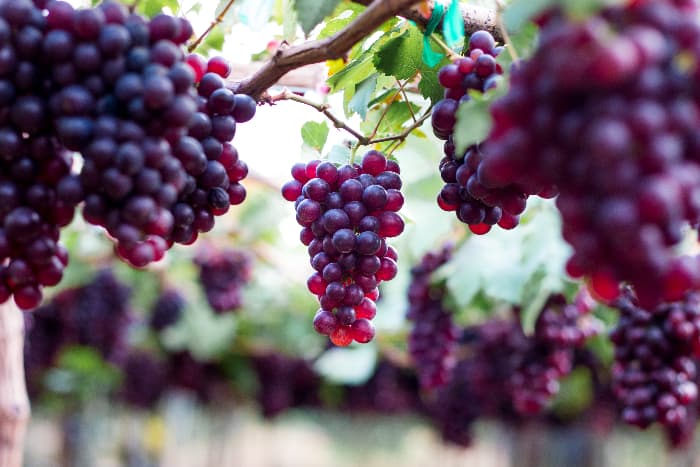
Nutritional Facts (1 cup, seedless):
– Calories: 60
– Carbohydrates: 15g
– Fiber: 1g
– Protein: 1g
– Fat: 0g
– Sodium: 1mg
– Potassium: 174mg
– Vitamin C: 10mg (15% DV)
– Vitamin K: 22mcg (25% DV)
– Antioxidants: High amount of polyphenols, anthocyanins, and resveratrol
Health Benefits:
– Heart Health: The antioxidants and polyphenols in red grapes may help lower cholesterol and blood pressure.
– Cancer Prevention: The antioxidants and resveratrol in red grapes may help prevent cancer cell growth.
– Brain Health: The antioxidants and resveratrol in red grapes may improve cognitive function.
– Anti-Inflammatory: The polyphenols and anthocyanins in red grapes may reduce inflammation.
– Kidney Health: Red grapes’ antioxidants, potassium, and fiber may help support kidney function.
Kidney Health Benefits:
– Reduced Oxidative Stress: The antioxidants in red grapes may help reduce oxidative stress in the kidneys.
– Improved Kidney Function: Red grapes’ potassium, fiber, and antioxidants may help support kidney function.
– Lower Blood Pressure: The potassium content in red grapes may help lower blood pressure.
Radish
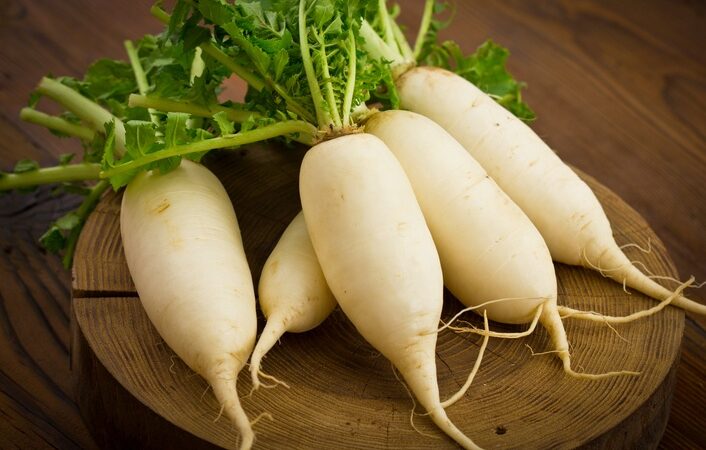
Nutritional Facts (1 cup, sliced):
– Calories: 17
– Carbohydrates: 4g
– Fiber: 2g
– Protein: 1g
– Fat: 0.1g
– Sodium: 20mg
– Potassium: 270mg
– Vitamin C: 29mg (48% DV)
– Vitamin K: 26mcg (33% DV)
– Antioxidants: High amount of anthocyanins and flavonoids
Health Benefits:
– Digestive Health: Radish fiber supports healthy digestion.
– Anti-Inflammatory: Radish antioxidants and flavonoids reduce inflammation.
– Cancer Prevention: Radish antioxidants and phytochemicals may prevent cancer.
– Cardiovascular Health: Radish fiber, potassium, and antioxidants support heart health.
– Immune System: Radish vitamin C supports immune function.
Kidney Health Benefits:
– Reduced Oxidative Stress: Radish antioxidants may reduce kidney oxidative stress.
– Improved Kidney Function: Radish fiber, potassium, and antioxidants support kidney function.
– Lower Blood Pressure: Radish potassium content may help lower blood pressure.
Types of Radish:
– Cherry Belle
– French Breakfast
– White Icicle
– Black Spanish
– Daikon
Cauliflower
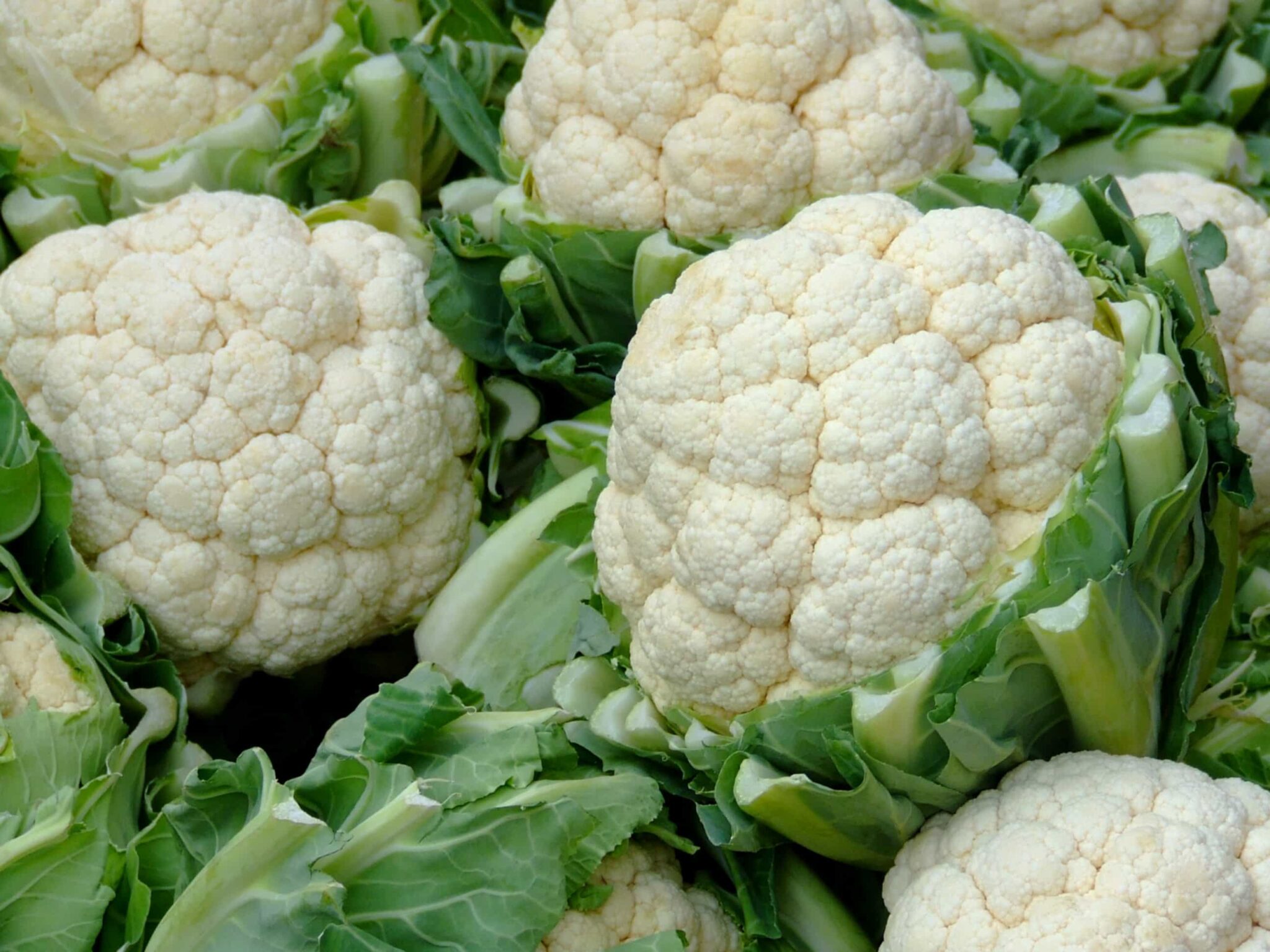
Nutritional Facts (1 cup, florets):
– Calories: 25
– Carbohydrates: 5g
– Fiber: 2g
– Protein: 2g
– Fat: 0.5g
– Sodium: 10mg
– Potassium: 320mg
– Vitamin C: 75mg (125% DV)
– Vitamin K: 14mcg (18% DV)
– Antioxidants: High number of polyphenols and glucosinolates
Health Benefits:
– Cancer Prevention: Cauliflower’s glucosinolates may prevent cancer cell growth.
– Heart Health: Cauliflower’s fiber, potassium, and antioxidants support heart health.
– Digestive Health: Cauliflower’s fiber supports healthy digestion.
– Anti-Inflammatory: Cauliflower’s antioxidants and polyphenols reduce inflammation.
– Brain Health: Cauliflower’s antioxidants and vitamin K support cognitive function.
Kidney Health Benefits:
– Reduced Oxidative Stress: Cauliflower’s antioxidants may reduce kidney oxidative stress.
– Improved Kidney Function: Cauliflower’s fiber, potassium, and antioxidants support kidney function.
– Lower Blood Pressure: Cauliflower’s potassium content may help lower blood pressure.
Types of Cauliflower:
– White
– Purple
– Green
– Orange
Green Leafy Greens
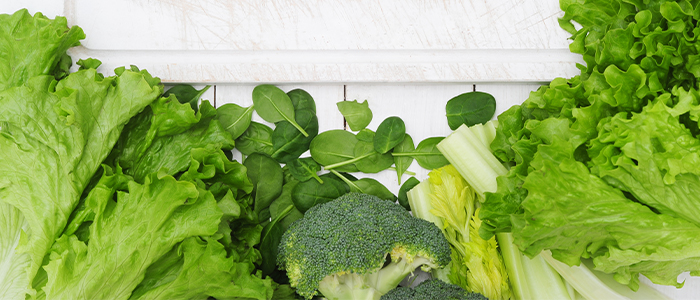
Types:
– Kale
– Spinach
– Collard Greens
– Swiss Chard
– Arugula
– Watercress
– Bok Choy
– Mustard Greens
– Beet Greens
– Turnip Greens
Nutritional Benefits:
– Rich in Vitamins A, C, and K
– High in Minerals (Calcium, Iron, Magnesium, Potassium)
– Good Source of Fiber and Antioxidants
– Low in Calories
Health Benefits:
– Eye Health: Lutein and Zeaxanthin reduce macular degeneration risk
– Heart Health: Fiber, Potassium, and Antioxidants support cardiovascular health
– Cancer Prevention: Antioxidants and Phytochemicals reduce cancer risk
– Bone Health: Calcium and Vitamin K support bone density
– Digestive Health: Fiber supports healthy gut bacteria
– Brain Health: Antioxidants and Folate support cognitive function
Kidney Health Benefits:
– Reduced Oxidative Stress: Antioxidants may reduce oxidative stress in kidneys
– Improved Kidney Function: Fiber, Potassium, and Antioxidants support kidney function
– Lower Blood Pressure: Potassium content may help lower blood pressure
Olive Oil

Nutritional Facts (1 tablespoon):
– Calories: 120
– Fat: 14g (18% DV)
– Saturated Fat: 2g
– Monounsaturated Fat: 11g
– Polyunsaturated Fat: 1g
– Sodium: 0mg
– Potassium: 0mg
– Vitamin E: 1.9mg (10% DV)
– Antioxidants: High amount of polyphenols and hydroxytyrosol
Health Benefits:
– Heart Health: Olive oil’s monounsaturated fats lower cholesterol and blood pressure.
– Anti-Inflammatory: Olive oil’s polyphenols reduce inflammation.
– Cancer Prevention: Olive oil’s antioxidants may prevent cancer cell growth.
– Brain Health: Olive oil’s antioxidants support cognitive function.
– Digestive Health: Olive oil’s monounsaturated fats support healthy digestion.
Kidney Health Benefits:
– Reduced Oxidative Stress: The antioxidants in olive oil may help reduce oxidative stress in the kidneys.
– Improved Kidney Function: The monounsaturated fats in olive oil support kidney function.
– Lower Blood Pressure: The potassium content in olive oil may help lower blood pressure.
Types of Olive Oil:
– Extra Virgin (EVOO)
– Virgin
– Pure
– Light
– Infused (flavored)
Onion
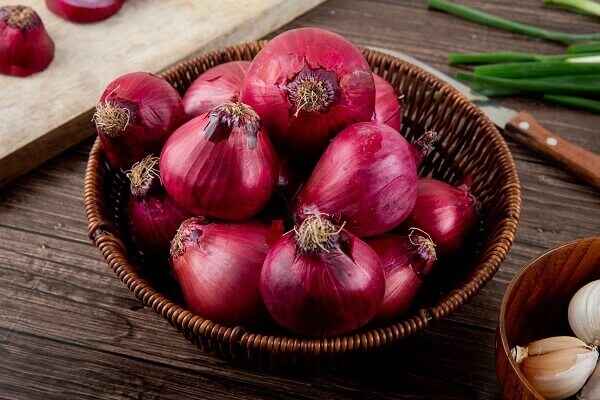
Nutritional Facts (per medium onion):
– Calories: 44
– Carbohydrates: 11g
– Fiber: 2g
– Protein: 1g
– Fat: 0g
– Sodium: 1mg
– Potassium: 166mg
– Vitamin C: 10mg (15% DV)
– Vitamin K: 26mcg (33% DV)
– Antioxidants: High amount of polyphenols and quercetin
Health Benefits of Onions:
– Cancer Prevention: The antioxidants and phytochemicals in onions may help prevent cancer cell growth.
– Heart Health: Onions’ fiber, potassium, and antioxidants support cardiovascular health.
– Digestive Health: The fiber in onions supports healthy digestion.
– Anti-Inflammatory: The quercetin in onions reduces inflammation.
– Immune System: The vitamin C in onions supports immune function.
Kidney Health Benefits of Onions:
– Reduced Oxidative Stress: The antioxidants in onions may reduce oxidative stress in the kidneys.
– Improved Kidney Function: Onions’ fiber, potassium, and antioxidants support kidney function.
– Lower Blood Pressure: The potassium content in onions may help lower blood pressure.
Types of Onions:
– Yellow
– White
– Red
– Shallots
– Scallions
– Leeks
Conclusion
Preserving healthy kidneys requires a well-rounded diet rich in nutrient-dense foods. By incorporating kidney-friendly foods into your daily meals, you can actively enhance the health of your kidneys. It is essential to prioritize whole foods while minimizing the consumption of processed and high-sodium options and ensuring adequate hydration. Seeking guidance from a healthcare professional or a registered dietitian to create a personalized diet plan and foods tailored to support kidney health is advisable. Through deliberate and informed food choices, you can significantly reduce the risk of kidney disease, effectively manage existing conditions, and optimize the functioning of your kidneys. Improve kidney health with these nutritious foods and dietary tips.
FAQs
Q: What are the main functions of the kidneys?
A: The kidneys filter waste, regulate electrolytes, and produce hormones.
Q: What is kidney disease?
A: Kidney disease is damage to the kidneys, impairing their function.
Q: What are the symptoms of kidney disease?
A: Fatigue, swelling, nausea, and decreased urine output.

